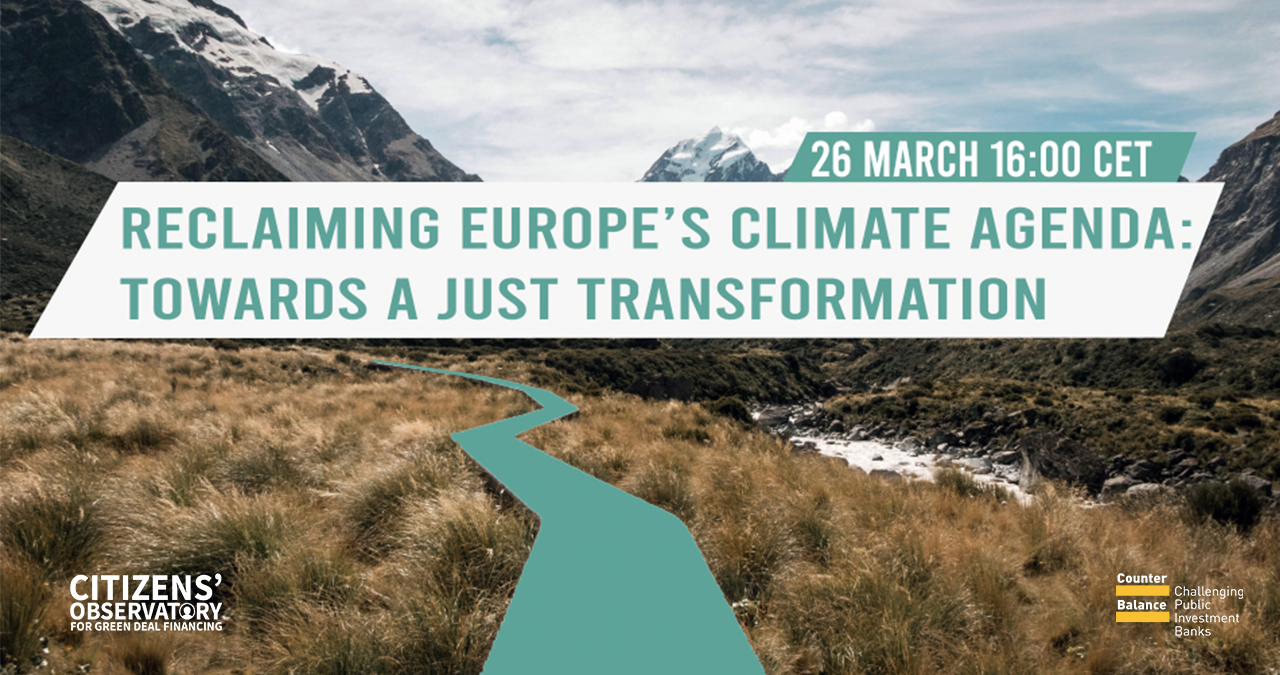
Based on the findings of the Citizens’ Observatory’s recent report ‘Beyond profit: how to reshape the European Green Deal for peoples’ well-being‘, the webinar aimed to discuss the EU’s investment in industrial policy planning and public ownership of energy.
The panel, comprising gender-diverse representatives from civil society and academia, focused on the shortcomings of EU public policy in delivering a just transition that benefits communities over corporate profits.
Participants discussed the urgent need to shift investment towards clean electricity while reducing reliance on fossil fuels. However, they acknowledged that relying on private investment alone isn’t enough, especially given that renewable energy ventures don’t always turn a profit immediately, and that despite targets being set, investment in the green transition remains insufficient across all sectors, especially in peripheral regions. The need to decarbonise transport, housing and invest in the energy supply chain was highlighted as paramount.
A key point raised was the crucial role of public subsidies in driving the transition, drawing parallels with past efforts such as the promotion of solar panels. But there’s a concern: austerity measures often lead to cuts in these subsidies, impacting job creation and slowing progress. Concerns remain about upcoming austerity measures, especially with the end of the next generation of EU budgets looming in 2026. This creates challenges in meeting investment needs and casts a shadow over future progress. Subsidies put a strain on public budgets, a reality that is exploited by some political factions, such as the far right, to argue for maintaining the status quo of fossil fuel dependency. It underlined the need for a truly transformative and progressive approach that could respond to the needs of citizens and move workers into sustainable sectors.
There was a strong emphasis on equity and justice in the conversation. There were calls to focus investment on community-based solutions and to target support to the most vulnerable households to ensure they aren’t left behind. Building key public infrastructure and broader public services to support a just transition was seen as essential.
The global perspective was also examined. While the EU looks to the Global South for raw materials and promotes clean-tech competition, concerns were raised about potential technology dependency and the lack of benefits for local communities.
Suggested solutions included democratic industrialisation plans that prioritise job creation, support sustainable growth and protect workers’ rights. Measures to reduce the lobbying power of corporations and to increase workers’ participation in decision-making were advocated.
Finally, there was recognition of the need to strengthen state capacity to manage change effectively and channel investment efficiently, given the evolving role of the state in the era of neoliberalism.
Participants took turns answering two different questions from the moderator and the audience, and the hour-long debate was attended by 20 participants from 11 countries.
This webinar was organised by Counter Balance as part of the “Citizens’ Observatory for Green Deal Financing” project, financed by the European Education and Culture Executive Agency (EACEA).

